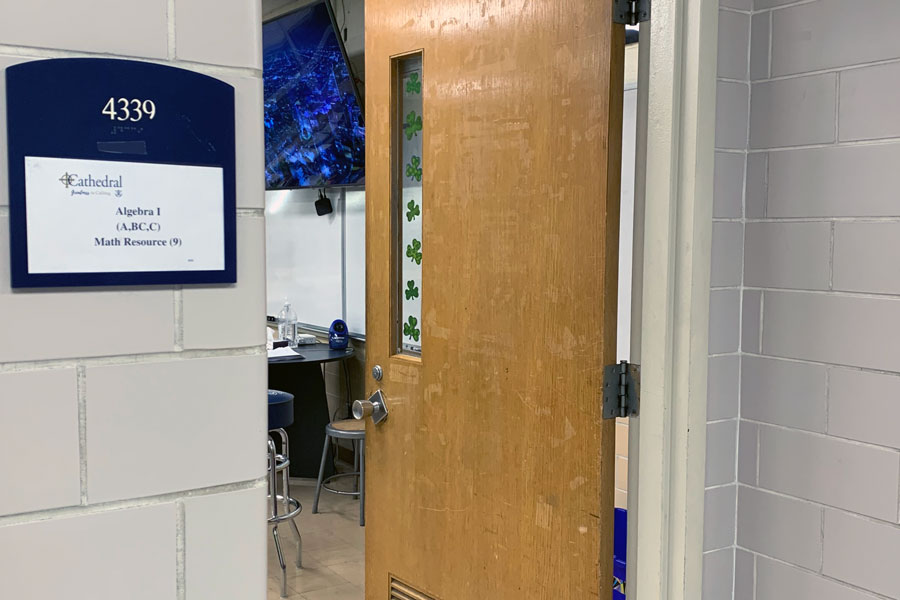As finals approach, math teachers focus on success
Five-day rotation creates challenges, instructors say
Most math classes meet on the second floor of Kelly Hall.
Every year, math units throughout all levels — Algebra I to calculus and beyond — are dropped and added, judged based on their viability. The goal is to best prepare students for the following year, but with a variety of schedules, Covid-19 concerns and the addition of J-term, these changes continue.
It’s up to math teachers to find a way to incorporate the most important concepts into their lessons so their students can be successful.
Math teacher Mrs. Shana Field said, “We work with what the next level is doing to see what necessary skills are needed to make it through that course, and then we make sure we cover those topics.”
The math department follows the academic standards set by the Indiana Department of Education, though minor adjustments can be made. Math teacher Mrs. Rachel Ludington said, “Math is pretty structured based on state standards so there is very little major change.”
Continuing, she explained that minor changes about which units to keep and which to push aside are made annually. Ludington said, “Some topics we may not get to one year but are able to get them back in another year. One major topic that we just haven’t had time for in academic Algebra II anymore is conic sections.”
Both Ludington and Field said that the five-day rotating schedule has caused more issues than both Covid-19 and J-term when it comes to what lessons can be taught within the school year. Field said, “When I first got here, we saw our students every day, and since this rotating schedule, we’ve had to cut some curriculum at the end to accommodate for that.” She said when it comes to personal preference, she would like what she called “less, shorter classes but meeting more often. While we do lose some days to J-term, it has great benefits that come out of it. I would also love for there to be more of a focus on financial lessons such as taxes and credit cards, but I would like for that to be put as a required financial class.”
Ludington also critiqued the five-day format. “Changes in the schedule have cut into what we can get through,” she said. “This is due to both the lack of the number of times that I meet with classes but also with the structure of the rotating schedule and gaps of three or four days between class meetings. We find we have to spend a few more days reviewing topics than we previously might have.”
“For example,” she continued, “If I am only meeting a class period twice during a week and a student is absent, that means during that week of school they only had one hour of math. This makes learning the material tougher.”
However, both math teachers congratulated their students on their ability to adjust to change, saying that Covid-19 caused few setbacks, despite the chaos, and that they look forward to continuing to strengthen their students’ math skills.

Ella Bundy is a junior and a reporter for the Megaphone. At Cathedral she is the student leader of the Alliance club and outside of Cathedral she spends...







